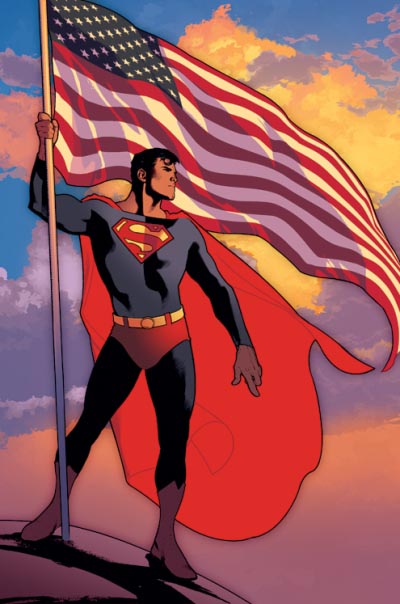

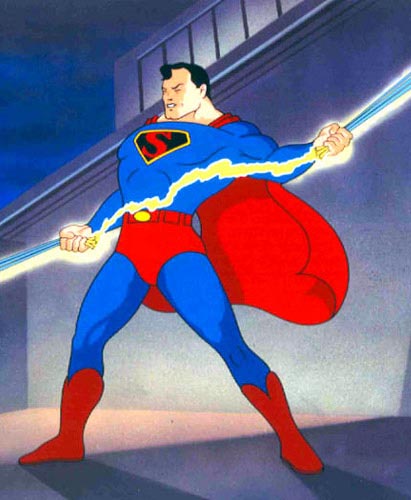
| With the late Silver Age and the emergence of the Bronze Age, there came a focus on the writing of the comics, and the symbolic nature of the characters. In regards to symbols, Superman might be one of the most symbolic superheroes of all time. Superman has been considered symbolic of many things. In early writings, he was a paradigm of truth, justice, and the American Way, some considering a Jimmy Stewart type superhero, who fought for the common man [despite his unflattering portrayal as Clark Kent (see previous web page)]. But as time went on, he has taken on many different symbolisms though he still represents these old values. But because of these values, he has lost favor in a world where the comic book fan base demands darker characters that are more relatable, though some still believe him to be a better role model, and as Superman writer Mark Millar points out "Who would you rather hang out with? (Den of Geek interview)" Still, some consider him too powerful and godlike to be looked up to and be relatable to, and his morals too old to be relevant. As Marc DiPaulo states in book, War, Politics, and Superheroes, "A popular misconception about Superman is that he is obsolete because he represents quaint, establishment ideas; apparently, he's as hip and relevant to the modern world as Ward Cleaver (DiPaulo 139)." |
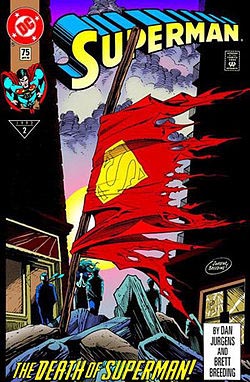
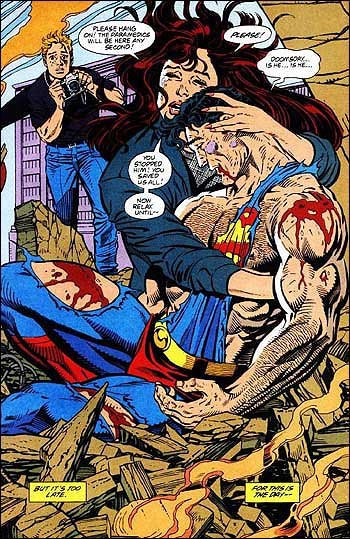
| The story met with enormous success, with the Superman titles gaining international exposure, reaching to the top of the comics' sales charts and selling out overnight. The event was even widely covered by national and international news media, and Superman had become relevant again. However, with his eventual resurrection in Reign of Supermen, there were those who soon saw Superman as a Christ figure, sacrificing himself for others, and then resurrecting. But this kind of symbolism drew criticism from some. Marshall McLuhan, who considered the figure of Superman to be more of a Guardian Angel type, and was troubled by America's decision to canonize such a figure, went on to claim "Like Superman, [the Angels] require neither education nor experience, but they possess... flawless intelligence about all things. Men have dreamed about becoming like these beings for quite awhile. However, fallen angels are known as devils. And imperfect men, possessing superhuman material power, are not a reassuring prospect (McLuhan 350)." But the religious ideas and symbols of Superman are not uncommon within the comic book universe. According to DiPaulo, Jewish scholars claim that all superheroes are inspired by Jewish figure of folklore called the Golem. The word was used to mean an amorphous, unformed material in Psalms and medieval writing (Idel 296). And, keeping in mind that many superheroes were created by Jewish immigrants, this makes a lot of sense. Golems were creatures made of clay, summoned by Hebrew mystics to help and protect Jewish people suffering and in great strife. Rabbi Simcha Weinstein, in his book, Up, Up, and Oy Vey: How Jewish History, Culture, and Values Shaped the Comic Book Superhero, claimed that just because the superheroes are not made of clay, does not mean they are not Golems, going so far as to cite an example of when a little girl asks the Incredible Hulk if he is a Golem, and later identifying Captain America, an enemy of Nazism in the 1940's as a Golem, with the belief that the "A" on Captain America's helmet not only stands for "America" but also "Aleph" a Hebrew symbol that also is worn on the heads of Golems, and is the source of the their power. In a way, it is this symbolism and sign that gives heroes their power. | 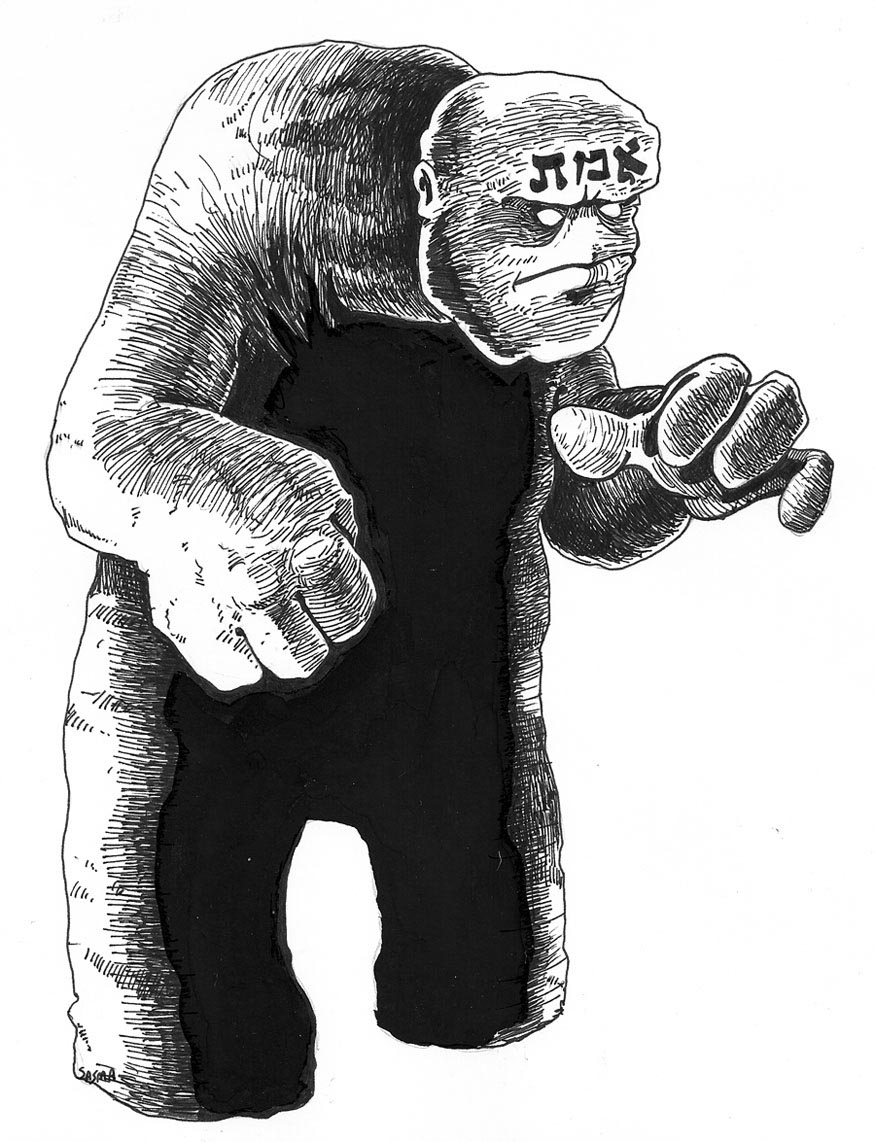
|
But these symbols changed over time, and heroes were made more vulnerable in order to up the
stakes, and allow the characters to be more relatable to the reader. With this in mind,
writers sought to bring Superman down to our level, by giving him real issues. As time went on,
a change was made to focus on Superman and his sense of alienation. With the rise of the debate
on immigration, Superman became another symbol. Here, we have Superman, born Kal-El on the planet
Krypton, sent to Earth by his parents because of the imminent destruction of their planet.
Superman, though a symbol for America, later became a symbol for the immigrant, and for all those
who felt alienated, as Superman was, literally, an alien. All great comic book characters are
symbols and representations. But again, this wasn't so important in the older days of comics.
That all drastically changed during the end years of the Silver Age and into the Bronze Age,
with the help of Stan Lee. Stan Lee, regarded as one of, if not, the greatest comic book
writer and editor of all time, started focusing on the importance of the story, and the
symbol of the comic book character. Characters like the X-Men, who represented minorities,
or Daredevil, a hero for the disabled. But none meant so much to so many people than Stan
Lee's greatest creation, Spiderman.
